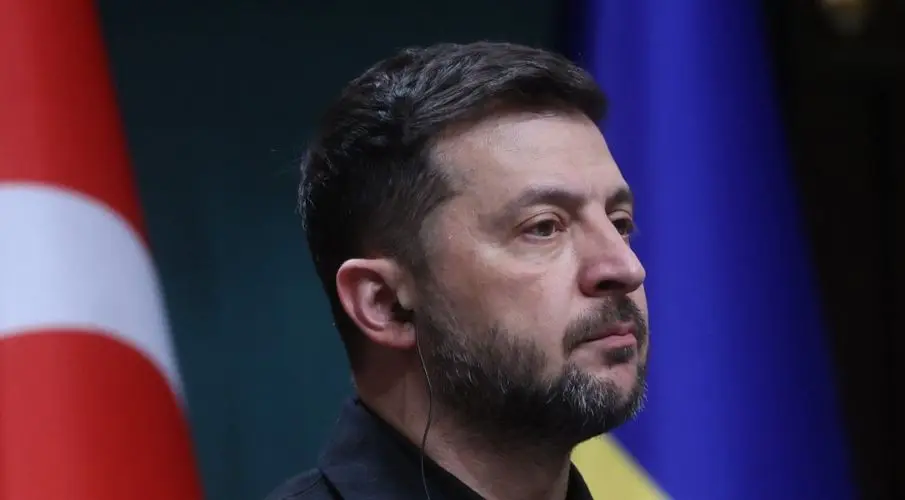
The Ukrainian delegation has returned from Geneva, and what President Zelensky is now making public shows more clearly than any government spokesperson in Washington how fragile these talks are and how much pressure Kyiv is under. The 28-point plan no longer exists in this form. Fewer points, new formulations, some concessions to Ukraine, some that remain in the room like a shadow. Zelensky emphasizes that the list of necessary steps is now “feasible”. But behind that sentence lies a conflict that could only be patched over with difficulty in Geneva: Ukraine is sitting at a table that others had long since set.
Zelensky describes a negotiating day that consisted almost entirely of meetings, concentrated, exhausting, without any break. The fact that he explicitly praises the American side for its “constructive behavior” says at least as much as it conceals. Ukraine knows very well how limited Washington’s patience has become and how openly the Trump administration formulates its expectations. It is no longer a secret that the United States wants to reach a result more quickly than would be safe for Ukraine. And Zelensky knows that not every conversation with European partners brings the support he needs.
His message to Trump is clear: he will discuss the sensitive points personally. It is an attempt to regain control in a process in which Ukraine constantly feels it must justify itself – for not surrendering, not giving in, not stopping the fight. “Ukraine will never be an obstacle to peace,” Zelensky says. This is not a sentence meant for the public. It is a sentence addressed to Washington, because the accusation hangs in the air there that Ukraine is the one blocking.
At the same time, Zelensky openly names what many diplomats admit only behind closed doors: Russia is trying to sabotage every phase of these negotiations. Not with tanks this time, but with information campaigns, intimidation, and the targeted claim that Ukraine does not want peace. The danger is real, because Moscow is playing for time – and for exhaustion. For Zelensky, this moment is not only about territory or phrasing. It is about dispelling the impression that Ukraine is a disruptive factor. It is about making visible that his country has spent almost three years trying to defend its statehood against an aggressor who uses every diplomatic space to push through its own positions. Ukraine is now fighting on two fronts: the military one – and the one where words, half-sentences, and diplomatic nuances are as dangerous as rockets.

Zelensky thanks the countries that continue to stand by Ukraine. But the subtext is unmistakable: the time of broad international unity is over. Europe is divided, the United States is unpredictable, Russia sees the West’s hesitation as an invitation. The fact that Zelensky uses this moment to remind the world of his country’s dignity and of the simple sentence that peace does not arise from coercion shows how difficult the situation has become.
The president is not sugarcoating anything. He is speaking because he knows how many interests are pushing into these talks – and how often Ukraine is the weakest actor in this tangle. His words make clear: Kyiv will continue negotiating, but it will not kneel. And that is exactly the point at which it will be decided in the coming days whether this peace process has a chance – or whether it will become the stage for the next power play.
Updates – Kaizen News Brief
All current curated daily updates can be found in the Kaizen News Brief.
To the Kaizen News Brief In English
Für Russland zählt jeder Tag, denn es ist zumindest im Bereich des Möglichen, dass Trump sich nicht mehr lange hält. Deshalb hat die Störung des Rückhalts der Ukraine oberste Priorität. Ich sehe leider furchtbar schwarz für die Ukraine, aber auch für ganz Europa. Denn, wie auch nur ein einziger von den beteiligten „Berufspolitikern“ der Meinung sein könnte, dass mit der Kapitulation der Ukraine Ruhe an der Westgrenze Russlands einkehren könnte, ist mir ein Rätsel.
…das stimmt, daher auch angriff auf angriff – für uns versagen die europäischen medien zum grössten teil mehr druck auf die eu auszuüben, das ist absolut schwach
Die Ukraine ist seit Trump nur noch eine reine Verhandlungsmasse zwischen dem Mörder Putin und dem Soziopathen Trump.
Aber leider war schon vor dem Machtwechsel in den USA, dem deutlichen Rechtsruck in Europa die Unterstützung der Ukraine fast nur auf Lippenbekenntnisse, Geld und ein wenig militärische Lieferungen begrenzt.
Die EU, im üblichen „wir empören uns und beraten erstmal monatelang“ Modus, die USA unter Biden auch zögerlich.
Scholz Weigerung Taurus an die Ukraine zu liefern und Merz, der es in der Opposition noch versprochen hat, vermeidet das Thema.
Es gab genug Möglichkeiten Russland mit aller Deutlichkeit entgegen zu pretend.
Zu zeigen, dass Europa, der Westen keine Angriffe toleriert.
Aber wie schon 2014, wo man es ok fand, dass Russland sich die Krim einverleibt hat und dafür garantiert hat, die Ukraine als eigenständigen Staat zu akzeptieren ….
Oh halt, daran hat sich ja Russland gehalten … zumindest 8 Jahre.
Wie dumm muss man sein zu glauben, dass die Ukraine mit solch erzwungenen Diktatfrieden sicher sei?
Das Europa nicht erneut russische Angriffe bevorstehen?
Europa ist nicht nur gespalten.
Europa ist ein riesiger, bequemer, bürokratidcher Wasserkopf geworden, der überhaupt nicht in der Lage ist adequate zu reagieren.
Für die Ukraine sehe ich schwarz.
Selensky tut mir sehr leid, dass er nicht die Unterstützung erhält, die wichtig ist.
Die Reise nach Washington wird daran nichts ändern.
Er kann sich freuen, wenn er nicht wieder vorgeführt wird.